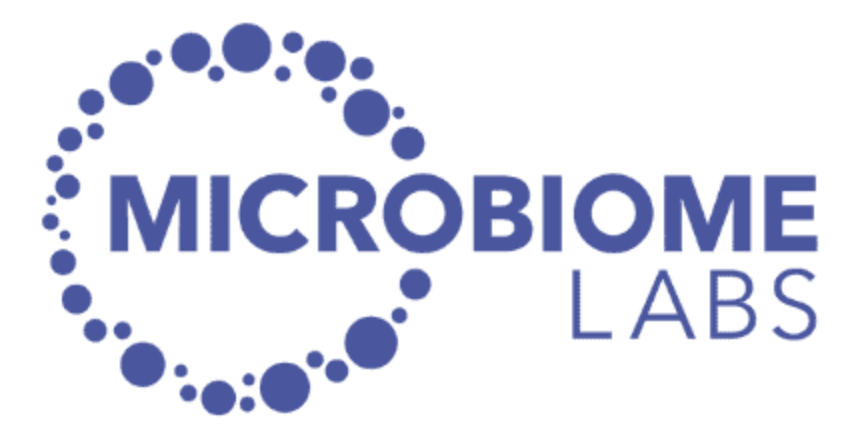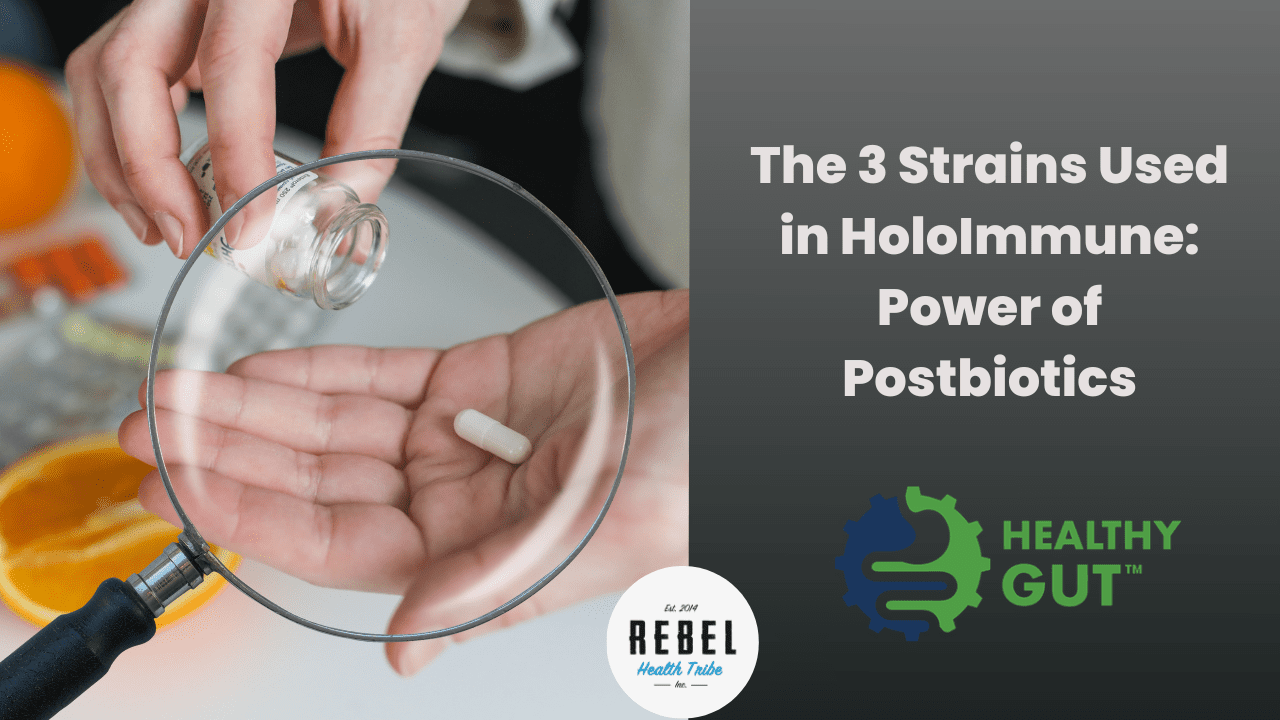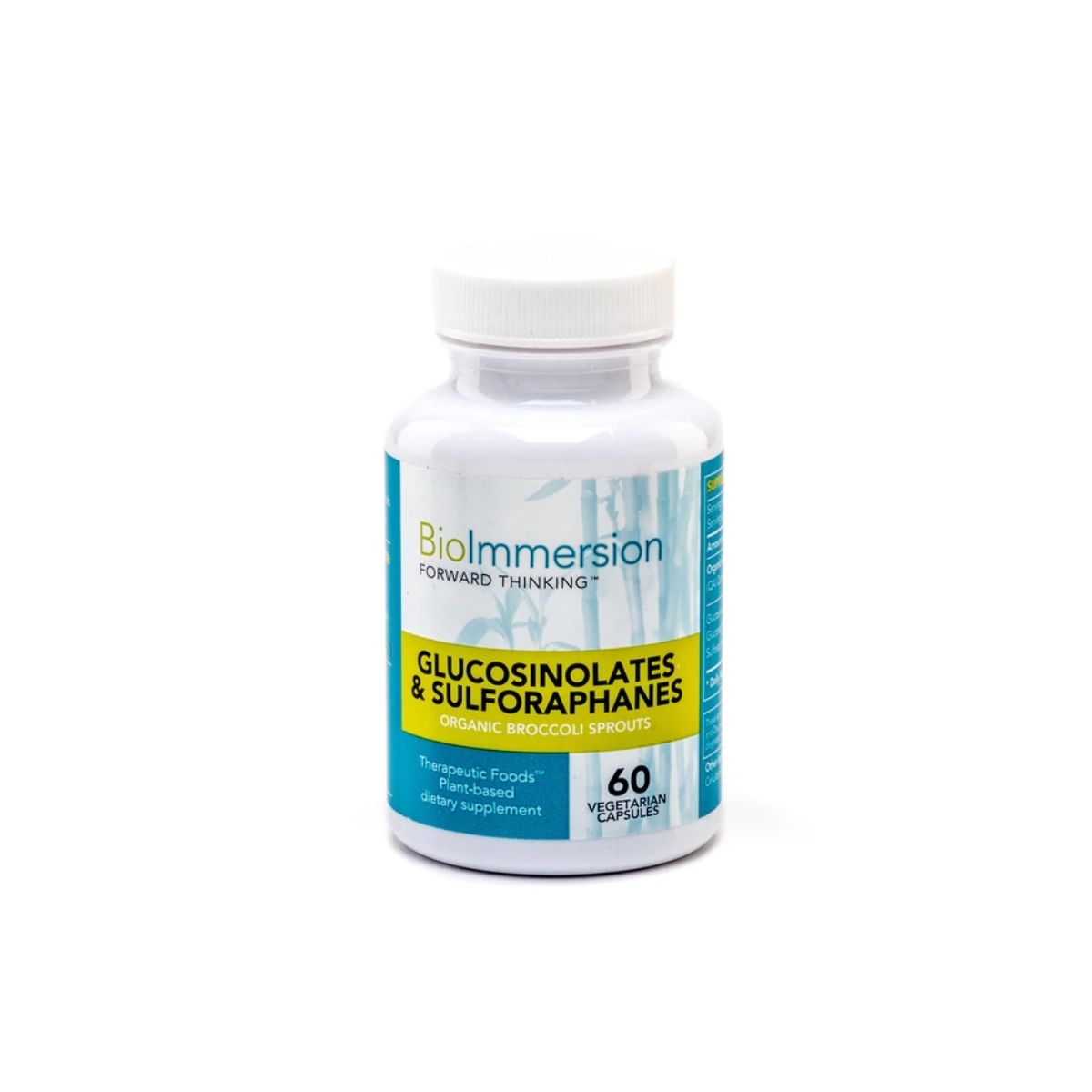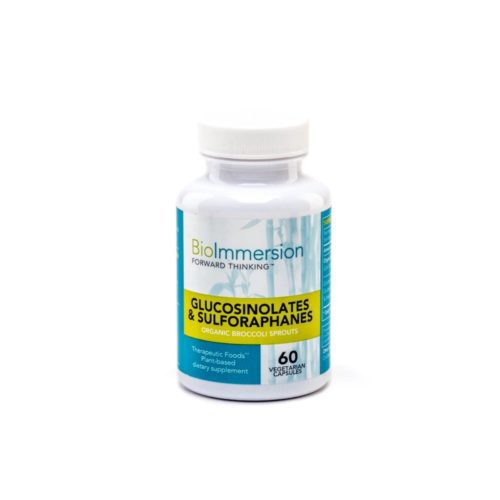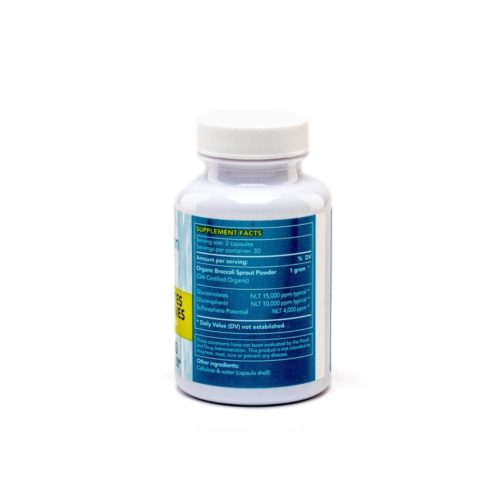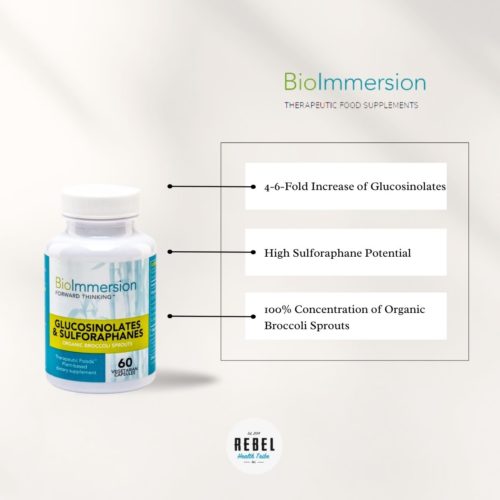COURSES
Latest New Course

WEBINARS & EVENTS
Upcoming Event

Shopping cart
Glucosinolates & Sulforaphanes
$61.98
Glucosinolates & Sulforaphanesis a powerhouse derived from broccoli sprout concentrate, providing a four fold increase in the phase II enzyme potential. The broccoli sprout concentrate is organic, vegan, kosher, Non GMO, gluten and yeast free
17 in stock
 FREE SHIPPING OVER $150
FREE SHIPPING OVER $150
 30-Day
RETURN POLICY
30-Day
RETURN POLICY
 HIGH QUALITY PRODUCTS ONLY
HIGH QUALITY PRODUCTS ONLY
Broccoli sprouts are the richest source of glucoraphanin which is the direct precursor to sulforaphane. Broccoli sulforaphane is one of the most potent inducers of phase II enzymes. Our Glucosinolates & Sulforaphanes is a powerhouse, providing a four fold increase in the phase 2 enzyme potential.
Learn more about the research and benefits of this power packed product. A daily must.
Features / Benefits:
- Vegan
- Kosher
- Non GMO
- Gluten Free
- Yeast Free
- 4-6-fold Increase of Glucosinolates
- High Sulforaphane Potential
- 100% Concentration of Organic Broccoli Sprouts
The new Cruciferous Sprouts has 100% concentration of organic broccoli sprouts and is named, Glucosinolates & Sulforaphanes, since it offers a 4-6-fold increase of glucosinolates for a high sulforaphane potential.
Glucosinolates & Sulforaphanes is a potent mix of Glucosinolates with 15,000 ppm, Glucoraphanin with 10,000 ppm, and Sulforaphanes Potential of 4,000 ppm. Broccoli sprouts grow into their peak when they are three days old, and can contain from 10-100 times more glucoraphanin, the glucosinolates of sulforaphane, than a mature broccoli plant. Each of our vegan capsule has 500 mg of organic broccoli sprouts, harvested at the peak of their phytonutrient power.
According to Leone et al. (2017), the vegetable broccoli accumulates a significant amount of the phyto-nutrient glucoraphanin (4-methylsulfinylbutyl glucosinolates) which is metabolized in our bodies into the biologically active Sulforaphane (SFN). The conversion requires the enzyme, myrosinase, which is also found in the broccoli plant as well as the bacterial myrosinases in the human colon. Once broccoli or broccoli sprouts are consumed and converted into SFN, this amazing phyto-nutrient is metabolized via the mercapturic acid pathway to form cysteinylglycine-, cysteine-, and N-acetylcysteine (NAC) conjugates. These metabolites are then excreted via the urine (Mennicke et al., 1988; Atwell et al., 2015). In fact, it has been shown in research that 70% of the ingested SFN was retrieved in urine (Egner et al., 2011), showing systemic benefits (Abbaoui et al., 2012).
Sulforaphanes (SFN) are found in high quantities in broccoli, and in higher quantities in broccoli sprouts. SFN is an isothiocyanate that occurs in a stored form as glucoraphanin in cruciferous vegetables (Vanduchova et al., 2018). Isothiocyanates are phyto-chemicals produced by cruciferous vegetables and sprouts. They are derivatives of glucosinolates in the cells of cruciferous plants. The hydrolysis (chemical breakdown during digestion) of glucosinolates by the enzyme myrosinase creates this pungent compound as a defensive tool to protect against pathogens that want to eat the plant. This same defense mechanism is known to offer excellent health benefits, including a fungicidal affect (Parker, 2015; Troncoso-Rojas et al., 2014; for more on the mechanism of SFN, see Leon et al., 2017).
SFN in Broccoli sprouts provide the most potent natural phase II enzyme inducer to boost the liver’s ability to detoxify. As a fun fact, broccoli sprouts are the most potent producers of Sulforaphanes, with broccoli plant as second, and then kohlrabi and cauliflower. But as we pointed out above, to activate the ability of broccoli, or SFN, the enzymes have to react: Two phytochemicals must react, or interact, to create SFN: Myrosinase (enzyme in the broccoli) and glucoraphanin (West et al., 2004). For this reason, we have chosen the most potent organic broccoli sprouts with high yield of Glucoraphanin of 10,000 ppm (a direct precursor to SFN).
Standardizing the enzymes to produce a high potential SFN is important. Our organic broccoli sprouts are guaranteed for high sulforaphane potential of 4,000 ppm to ensure consistent daily intake of SFN. The history and ongoing research on the health benefits of cruciferous vegetables and in particular, broccoli and broccoli sprouts are impressive. Take a look at our Research tab and read some of the articles on SFN in broccoli sprouts.
In 1992, Zhang et al. have isolated sulforaphane and shown that it is potent and effective anti-carcinogenic agent (Zhang et al., 1992; Leon et al., 2017). Since then, Sulforaphanes (SFN) derived from cruciferous broccoli sprouts have shown numerous bioactivities (Su et al., 2018) that offer different kinds anti-carcinogenic properties (Mokhtari et al., 2018; Suresh et al., 2018; Su et al., 2018), phase II detoxifying enzymes (Thangapandiyan et al., 2018; James et al., 2012), including phase II antioxidant enzymes in the human upper airways (Riedl et al., 2009; Heber et al., 2014).
Moreover, SFN has also been researched as an effective agent for cardiovascular health (Gray, 2018; Angeloni et al., 2009), anti-inflammation (López-Chillón et al., 2018), detoxification of airborne pollutants (Egner et al., 2014), H-pylori antimicrobial with a general benefit for gut health (Yanaka, 2017, and 2018) and brain health (Sedlak et al., 2017), including support for autism (Singh et al, 2014).
To understand how SFN works in our body, turn to researchers such as Xin Jiang et al. (2018), for a thorough review. In Chemopreventive activity of sulforaphane, Jiang et al. explain the many bioactive dietary compounds in vegetables and fruits that have been demonstrated to be effective in cancer prevention and even intervention. Cruciferous vegetables, and in particular, sulforaphanes have been shown to have chemopreventive activity – in vitro and in vivo. Several mechanisms are outlined such as: regulation of Phase I and Phase II drug-metabolizing enzymes, cell cycle arrest, and induction of apoptosis, especially via regulation of signaling pathways as NrFe-Keap 1 and NF-k. Jiang et al. (2018) includes the research on SFN’s effect on epigenetic control of key genes involved in initiation and progression of cancer, showing a promise for using SFN as cancer chemopreventive strategy. In fact, there are many different kinds of phyto-nutrients that are found to be effective agents in the prevention of cancer, including favorable mediation of epigenetic changes (Pandey et al., 2017; Jiang et al., 2018).
Sulforaphanes are also known to have anti-inflammatory properties, significantly reducing DNA-binding activity of NF-kB, a transcription factor that regulates the expression of several pro-inflammatory genes (Jiang et al., 2018; Kamakar et al., 2006).
SFN in broccoli sprouts is found to be safe (Shapiro et al., 2006) and well tolerated, even when it is used for advanced pancreatic cancer treatments (Lozanovski et al, 2014). Since SFN operates through several different mechanisms in the body, including regulations of Phase I and II, anti-inflammatory process, and more, it is well worth the inclusion of this dietary food into a daily routine.

